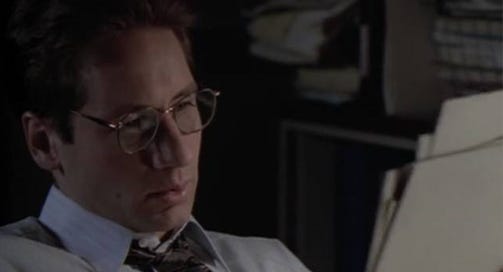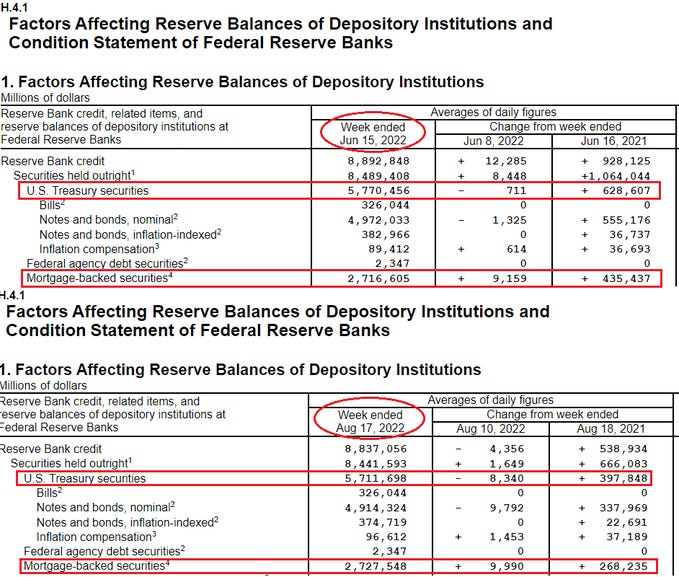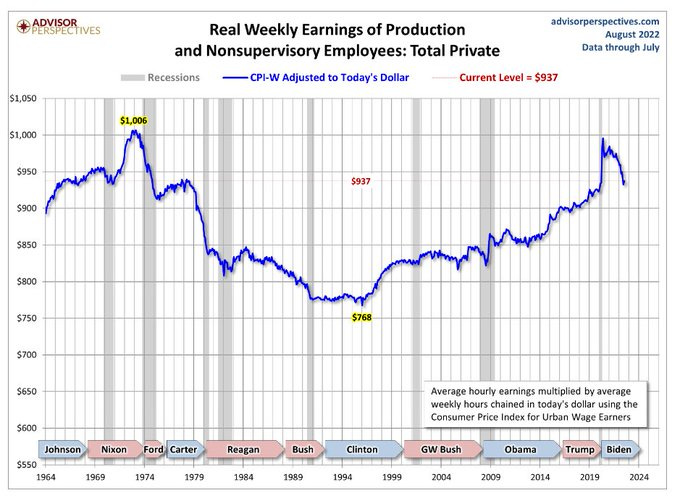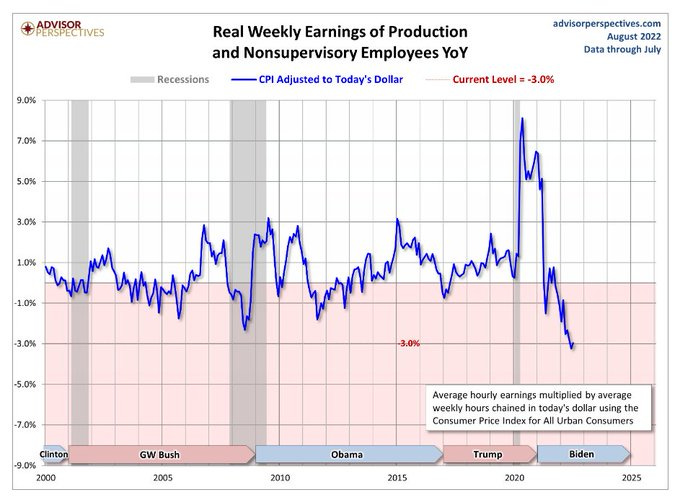"The Fed is government. It's much more post-office than bank. You can think of it as a business that can't fail run by people who can't be fired." - Joseph Wang
There is only one difference between a bad economist and a good one: the bad economist confines himself to the visible effect; the good economist takes into account both the effect that can be seen and those effects that must be foreseen.
Yet this difference is tremendous; for it almost always happens that when the immediate consequence is favorable, the later consequences are disastrous, and vice versa. Whence it follows that the bad economist pursues a small present good that will be followed by a great evil to come, while the good economist pursues a great good to come, at the risk of a small present evil.
…there is a second main factor that spawns new economic fallacies every day. This is the persistent tendency of men to see only the immediate effects of a given policy, or its effects only on a special group, and to neglect to inquire what the long-run effects of that policy will be not only on that special group but on all groups. It is the fallacy of overlooking secondary consequences.
As soon as A observes something which seems to him to be wrong, from which X is suffering, A talks it over with B, and A and B then propose to get a law passed to remedy the evil and help X.
Their law always proposes to determine what C shall do for X or, in the better case, what A, B and C shall do for X. As for A and B, who get a law to make themselves do for X what they are willing to do for him, we have nothing to say except that they might better have done it without any law, but what I want to do is to look up C. I want to show you what manner of man he is.
I call him the Forgotten Man. Perhaps the appellation is not strictly correct. He is the man who never is thought of. He is the victim of the reformer, social speculator and philanthropist, and I hope to show you before I get through that he deserves your notice both for his character and for the many burdens which are laid upon him.
- William Graham Sumner, 1883
The title quote comes from this podcast with Kevin Muir, Patrick Ceresna and Joseph Wang.
Another very illuminating interview with former Fed trader Joseph Wang…
"They're definitely in their own world. The Fed does have a small army of economists. The typical Fed senior economist career path is kindergarten to PhD to the Fed, and become a Fed lifer."
"Everyone who said inflation would be transitory and contributed to these policy errors - I'm sure they all work at the Fed still, so there's really no accountability."
"The people who have a lot of influence on monetary policy and research - these people don't really have any real-world experience. They've never traded anything, they've never worked in the private sector, they've never ran anything..."
"Their experience is limited. It comes through textbooks mostly, so that's part of the reason why I think that some of the research and some of the things that come out of the Fed don't seem to make a lot of sense..."
"The incentives aren't there - ever - to do a very good job. That's kind of what happens at the Fed."
"Many smart & motivated people join & learn a ton & then they leave. The bottom line is that if you're a company that doesn't have profit or loss & can never fail, there's really no point in trying to retain people. You become a place where people sit around & collect paychecks."
"The people who eventually rise up to decision levels at the Fed, they tend to be there almost completely on the strength of tenure, whereas everyone else who could leave would go into the private sector and make a lot more money and be judged by what they can do."
"There's this huge negative selection there [at the Federal Reserve] & I think it's really concerning because the Fed is such a powerful institution, yet many of the people who make these decisions don't really seem to have the knowledge or expertise that is suitable to the job."
Gordon Johnson: "Is there a fear of inflation at the Fed, or do you think they just don't care?" Wang: "Well, they say they care a lot, but I don't know what's in their head."
“Everyone who said inflation would be transitory and contributed to these policy errors - I'm sure they all work at the Fed still, so there's really no accountability."
Without accountability, "from an incentive perspective there's no reason to really care whether or not you're doing a good job. So if we have high inflation, if we have to induce a recession to get inflation under control, that really doesn't affect anyone at the Fed." - Wang
"They'll still have their jobs. They'll still get their increases, they'll still have their guaranteed pension, so there's an incentive problem here that's not easy to solve."
Having said all this, you’d think Joseph Wang would want the Fed disbanded, or at least put on a short leash…but apparently no.
The Fed’s weekly balance sheet update came out today.
Over the past two months, there’s been a 1% drop in Treasuries, and a 0.4% INCREASE in MBS holdings.
The Federal Reserve has monetized $268 BILLION of MBS since last August, when official CPI was at 5.2% and the Case-Shiller Home Price Index was running at 20% YOY! This is criminal.
Come on, man!
Next time you go to the supermarket, tell the cashier that "the market thinks inflation is coming down," and see if they'll give you a discount.
Twitter Becomes a Tool of Government Censorship
Facts that Mr. Berenson unearthed through the discovery process confirm that the administration has been secretly asking social-media companies to shut down the accounts of specific prominent critics of administration policy…
Mr. Berenson published conversations from an internal Twitter Slack channel. Referring to an April 2021 meeting with White House officials, one Twitter employee noted that the meeting overall was “pretty good,” but added that the White House “had one really tough question about why Alex Berenson hasn’t been kicked off from the platform.”
…social-media companies were already suppressing speech about Covid that was well within the bounds of legitimate debate and sometimes proved accurate. Facebook had banned anyone from saying that Covid might have originated in a lab in Wuhan, China, or that the Covid vaccines didn’t prevent infection.
When the government exploits these legislative inducements to target specific critics for censorship, it has crossed a constitutional Rubicon. Targeting, punishing and silencing dissenters is the paradigmatic First Amendment violation. The Biden administration is using Big Tech as its private censorship arm, and that violates what the Supreme Court, in Norwood v. Harrison (1973), called an “axiomatic” principle: The government “may not induce, encourage or promote private persons to accomplish what it is constitutionally forbidden to accomplish.”
The administration’s behind-the-scenes use of social-media companies to evade the First Amendment seems to be continuing unabated. In April this year Ms. Psaki, who was still the White House press secretary, said: “We engage regularly with all social media platforms about steps that can be taken . . . and I’m sure that will continue. But there are also reforms we think Congress could take and we would support taking, including reforming Section 230 [and] enacting antitrust reforms.” The unexplained pivot to “antitrust reform” here is telling: Censor the “problematic” posts and people we identify, Ms. Psaki implies, or we may break you up under the antitrust laws.
"Crypto broker Genesis will cut a fifth of its staff and replace its chief executive as it counts the cost of lending $2.4bn to hedge fund Three Arrows Capital."
"Canada’s second largest pension fund manager has written off its $150mn investment in crypto lending platform Celsius Network and conceded it went into crypto “too soon”."
I'm shocked by the variety of people who got ripped off in crypto. I guess ZIRP causes people to make bad investment choices. Check out this call this podcast host got in February. Starts about 25 minutes in. Not making fun of anyone here. It's sad.
Interview with John Greenwald of The Black Vault, “the largest privately run online repository of declassified government documents anywhere in the world.” I found this interview quite interesting - mostly about UAP’s. Part 2 here.
I disapprove of what you say, but I will defend to the death your right to say it, unless I disagree with you. - Millennial Voltaire












“The typical Fed senior economist career path is kindergarten to PhD to the Fed, and become a Fed lifer.” This is true of most of all our bureaucracy. It’s the reason I live about half my days certain that we are all doomed.
Thanks for the memories of the greats: Bastiat, Hazlitt, Sumner, and Psaki